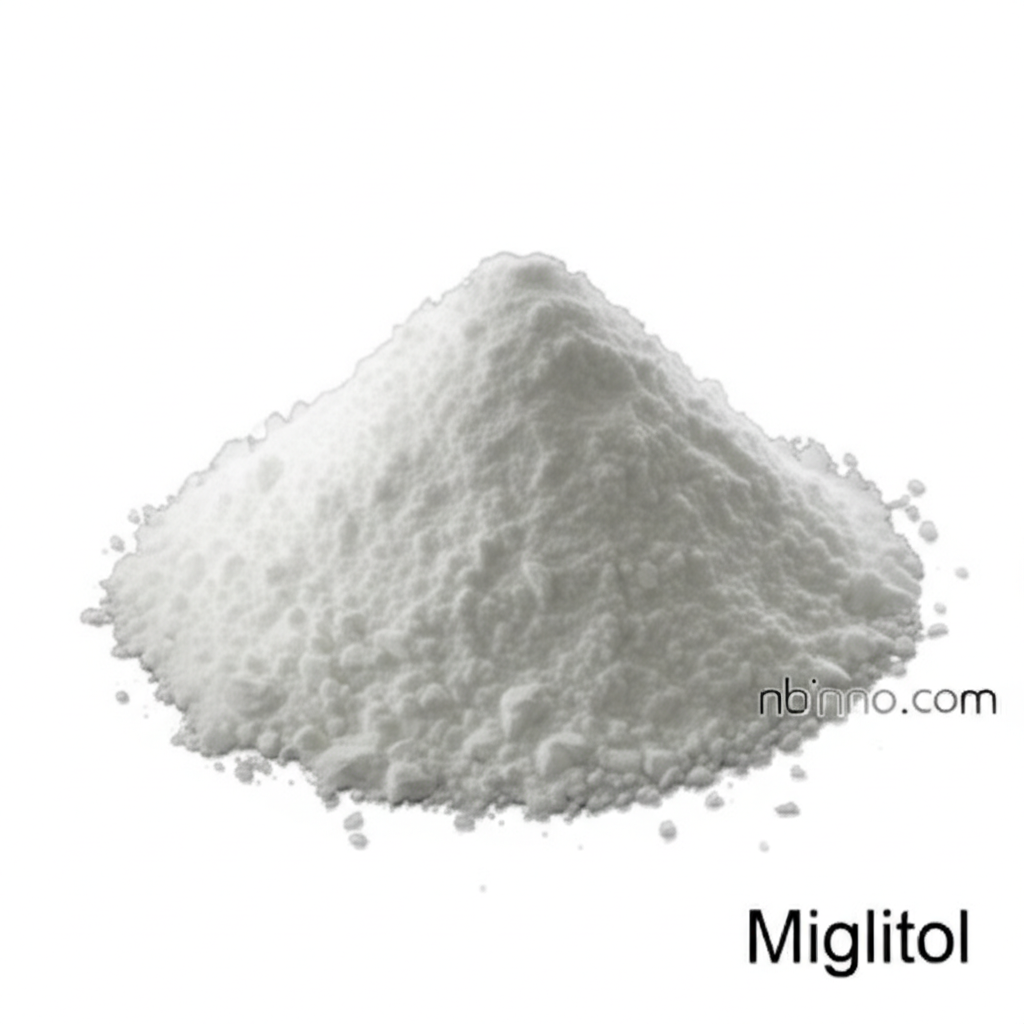Miglitol: Understanding Its Role as an Alpha-Glucosidase Inhibitor
A key agent in managing type 2 diabetes by regulating carbohydrate digestion and blood sugar.
Get a Quote & SampleProduct Core Value

Miglitol
Miglitol is a critical pharmaceutical compound functioning as an alpha-glucosidase inhibitor. Its primary role is to manage blood sugar levels in individuals with type 2 diabetes by delaying the breakdown and absorption of complex carbohydrates in the digestive system. This action helps to prevent sharp spikes in blood glucose after meals, contributing to better overall glycemic control.
- Miglitol alpha-glucosidase inhibitor activity is crucial for managing postprandial hyperglycemia, a common challenge in type 2 diabetes.
- The miglitol mechanism of action involves the reversible inhibition of intestinal alpha-glucosidases, thereby slowing carbohydrate digestion.
- Effective miglitol for type 2 diabetes management relies on its ability to reduce HbA1c levels and improve overall metabolic health.
- Understanding miglitol side effects, primarily gastrointestinal disturbances, is important for patient management and adherence to treatment.
Key Advantages
Improved Glycemic Control
By inhibiting alpha-glucosidases, miglitol effectively contributes to improved blood sugar control, a cornerstone of type 2 diabetes management.
Delayed Carbohydrate Absorption
The drug's action on carbohydrate digestion leads to a slower release of glucose into the bloodstream, aiding in the prevention of sharp post-meal glucose surges. This makes it a valuable antidiabetic drug.
Systemic Absorption & Renal Excretion
Unlike some other inhibitors, miglitol is systemically absorbed but not metabolized, with excretion primarily through the kidneys, offering a distinct pharmacokinetic profile for therapeutic consideration in glycemic control.
Key Applications
Type 2 Diabetes Management
Primary application in treating hyperglycemia in patients with type 2 diabetes, leveraging its antidiabetic drug properties.
Postprandial Glucose Regulation
Effectively regulates blood sugar levels after meals, a critical aspect of maintaining stable glucose profiles and enhancing glycemic control.
Pharmaceutical Intermediates
Serves as a key compound in the synthesis of more complex pharmaceutical agents or can be used as a standalone pharmaceutical intermediate for related research.
Metabolic Disorder Research
Investigated for potential roles in other metabolic disorders due to its influence on carbohydrate metabolism and potential anti-obesity effects, making it relevant for research into miglitol for type 2 diabetes.
